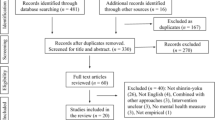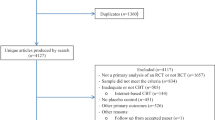Abstract
The aim of this study was to assess the feasibility and potential effectiveness of a 6-week virtual sEMG biofeedback intervention for patients with episodic migraines. Patients with episodic migraines were randomized to treatment with a novel surface EMG (sEMG) at-home biofeedback device or a treatment as usual control group; they completed validated baseline and post-intervention assessments of migraine related disability (migraine-specific quality of life, anxiety and depression). Participants also underwent a series of Quantitative Sensory Testing (QST) procedures referring to several different tests that quantitatively assess responses to mechanical stimuli during two separate visits (baseline and post intervention). No adverse events were reported during the study. Compared to the treatment as usual comparison group, patients in the sEMG biofeedback group reported lower migraine disability (p < 0.05). Compared to baseline, participants in the sEMG biofeedback group demonstrated statistically significant reductions in anxiety (p < 0.01), and significant increases in quality of life (p < 0.001), and significant decreases in temporal summation (p < 0.05) assessed by QST. No significant changes were observed in any of the outcomes in the control comparison group (p > 0.05). No significant changes were observed in migraine frequency in either of the two groups (p > 0.05). In addition, mediation analyses revealed that changes in migraine related quality of life mediated group effects on changes in migraine disability. Virtual sEMG biofeedback shows promise as a potential therapy for reducing disability, anxiety and depression and improving quality of life in individuals with episodic migraines. These results demonstrate the feasibility of a digital intervention for migraines and set the basis for conducting a future, larger scale randomized controlled trial to confirm these preliminary findings.

Similar content being viewed by others
References
Andrasik, F. (2010). Biofeedback in headache: An overview of approaches and evidence. Cleveland Clinic Journal of Medicine,77(Suppl 3), 72–76. https://doi.org/10.3949/ccjm.77.s3.13
Arendt-Nielsen, L., & Petersen-Felix, S. (1995). Wind-up and neuroplasticity: Is there a correlation to clinical pain? European Journal of Anaesthesiology Supplement,10, 1–7.
Ashina, M., Katsarava, Z., Do, T. P., Buse, D. C., Pozo-Rosich, P., Özge, A., & Lipton, R. B. (2021). Migraine: Epidemiology and systems of care. Lancet,397(10283), 1485–1495. https://doi.org/10.1016/s0140-6736(20)32160-7
Bjelland, I., Dahl, A. A., Haug, T. T., & Neckelmann, D. (2002). The validity of the hospital anxiety and depression scale: An updated literature review. Journal of Psychosomatic Research,52(2), 69–77. https://doi.org/10.1016/s0022-3999(01)00296-3
Chapman, S. L. (1986). A review and clinical perspective on the use of EMG and thermal biofeedback for chronic headaches. Pain,27(1), 1–43. https://doi.org/10.1016/0304-3959(86)90219-8
Dahlof, C. G. (2003). Measuring disability and quality of life in migraine. Drugs of Today (Barcelona Spain),39(Supplement D), 17–23.
De Icco, R., Perrotta, A., Grillo, V., Cosentino, G., Sances, G., Sandrini, G., & Tassorelli, C. (2020). Experimentally induced spinal nociceptive sensitization increases with migraine frequency: A single-blind controlled study. Pain,161(2), 429–438. https://doi.org/10.1097/j.pain.0000000000001726
Di Antonio, S., Castaldo, M., Ponzano, M., Bovis, F., Hugo Villafañe, J., Torelli, P., & Arendt-Nielsen, L. (2022). Trigeminal and cervical sensitization during the four phases of the migraine cycle in patients with episodic migraine. Headache,62(2), 176–190. https://doi.org/10.1111/head.14261
Edwards, R. R. (2005). Individual differences in endogenous pain modulation as a risk factor for chronic pain. Neurology Journals,65(3), 437–443. https://doi.org/10.1212/01.wnl.0000171862.17301.84
Edwards, R. R., Haythornthwaite, J. A., Sullivan, M. J., & Fillingim, R. B. (2004). Catastrophizing as a mediator of sex differences in pain: Differential effects for daily pain versus laboratory-induced pain. Pain,111(3), 335–341. https://doi.org/10.1016/j.pain.2004.07.012
Edwards, R. R., Sarlani, E., Wesselmann, U., & Fillingim, R. B. (2005). Quantitative assessment of experimental pain perception: Multiple domains of clinical relevance. Pain,114(3), 315–319. https://doi.org/10.1016/j.pain.2005.01.007
Eide, P. K. (2000). Wind-up and the NMDA receptor complex from a clinical perspective. European Journal of Pain,4(1), 5–15. https://doi.org/10.1053/eujp.1999.0154
Gauthier, J., Cote, G., & French, D. (1994). The role of home practice in the thermal biofeedback treatment of migraine headache. Journal of Consulting and Clinical Psychology,62(1), 180–184. https://doi.org/10.1037//0022-006x.62.1.180
Giannini, G., Zanigni, S., Grimaldi, D., Melotti, R., Pierangeli, G., Cortelli, P., & Cevoli, S. (2013). Cephalalgiaphobia as a feature of high-frequency migraine: A pilot study. The Journal of Headache and Pain,14(1), 49. https://doi.org/10.1186/1129-2377-14-49
Grazzi, L., Andrasik, F., D’Amico, D., Leone, M., Usai, S., Kass, S. J., & Bussone, G. (2002). Behavioral and pharmacologic treatment of transformed migraine with analgesic overuse: Outcome at 3 years. Headache,42(6), 483–490. https://doi.org/10.1046/j.1526-4610.2002.02123.x
IHS. (2013). The international classification of headache disorders (beta version). Cephalalgia,33(9), 629–808. https://doi.org/10.1177/0333102413485658
Jhingran, P., Davis, S. M., LaVange, L. M., Miller, D. W., & Helms, R. W. (1998). MSQ: Migraine-specific quality-of-life questionnaire. Further investigation of the factor structure. PharmacoEconomics,13(6), 707–717. https://doi.org/10.2165/00019053-199813060-00007
Katz, N. P., Paillard, F. C., & Edwards, R. R. (2015). Review of the performance of quantitative sensory testing methods to detect hyperalgesia in chronic pain patients on long-term opioids. Anesthesiology,122(3), 677–685. https://doi.org/10.1097/ALN.0000000000000530
Kawata, A. K., Coeytaux, R. R., Devellis, R. F., Finkel, A. G., Mann, J. D., & Kahn, K. (2005). Psychometric properties of the HIT-6 among patients in a headache-specialty practice. Headache,45(6), 638–643. https://doi.org/10.1111/j.1526-4610.2005.05130.x
Klan, T., Gaul, C., Liesering-Latta, E., Both, B., Held, I., Hennemann, S., & Witthöft, M. (2022). Efficacy of cognitive-behavioral therapy for the Prophylaxis of Migraine in adults: A Three-Armed Randomized Controlled Trial. Frontiers in Neurology,13, 852616. https://doi.org/10.3389/fneur.2022.852616
Kolotylo, C. J., & Broome, M. E. (2000). Predicting disability and quality of life in a community-based sample of women with migraine headache. Pain Management Nursing,1(4), 139–151. https://doi.org/10.1053/jpmn.2000.19344
Kosinski, M., Bayliss, M. S., Bjorner, J. B., Ware, J. E., Jr., Garber, W. H., Batenhorst, A., & Tepper, S. (2003). A six-item short-form survey for measuring headache impact: The HIT-6. Quality of Life Research,12(8), 963–974. https://doi.org/10.1023/a:1026119331193
Lazaridou, A., Paschali, M., Vilsmark, E. S., Sadora, J., Burton, D., Bashara, A., & Edwards, R. R. (2023). Biofeedback EMG alternative therapy for chronic low back pain (the BEAT-pain study). Digital Health,9, 20552076231154384. https://doi.org/10.1177/20552076231154386
Leonardi, M., Raggi, A., Bussone, G., & D’Amico, D. (2010). Health-related quality of life, disability and severity of disease in patients with migraine attending to a specialty headache center. Headache,50(10), 1576–1586. https://doi.org/10.1111/j.1526-4610.2010.01770.x
Martin, B. C., Pathak, D. S., Sharfman, M. I., Adelman, J. U., Taylor, F., Kwong, W. J., & Jhingran, P. (2000). Validity and reliability of the migraine-specific quality of life questionnaire (MSQ Version 2.1). Headache,40(3), 204–215. https://doi.org/10.1046/j.1526-4610.2000.00030.x
Mullally, W. J., Hall, K., & Goldstein, R. (2009). Efficacy of biofeedback in the treatment of migraine and tension type headaches. Pain Physician,12(6), 1005–1011.
Nahman-Averbuch, H., Shefi, T., Schneider, V. J., Li, D., Ding, L., King, C. D., & Coghill, R. C. (2018). Quantitative sensory testing in patients with migraine: A systematic review and meta-analysis. Pain,159(7), 1202–1223. https://doi.org/10.1097/j.pain.0000000000001231
Nestoriuc, Y., & Martin, A. (2007). Efficacy of biofeedback for migraine: A meta-analysis. Pain,128(1–2), 111–127. https://doi.org/10.1016/j.pain.2006.09.007
Nestoriuc, Y., Martin, A., Rief, W., & Andrasik, F. (2008). Biofeedback treatment for headache disorders: A comprehensive efficacy review. Applied Psychophysiology and Biofeedback,33(3), 125–140. https://doi.org/10.1007/s10484-008-9060-3
Onan, D., Younis, S., Wellsgatnik, W. D., Farham, F., Andruškevičius, S., Abashidze, A., & Ashina, S. (2023). Debate: Differences and similarities between tension-type headache and migraine. Journal of Headache and Pain,24(1), 92. https://doi.org/10.1186/s10194-023-01614-0
Pradeep, R., Nemichandra, S. C., Harsha, S., & Radhika, K. (2020). Migraine disability, quality of life, and its predictors. Annals Neuroscien,27(1), 18–23. https://doi.org/10.1177/0972753120929563
Preacher, K. J., & Hayes, A. F. (2004). SPSS and SAS procedures for estimating indirect effects in simple mediation models. Behavior Research Methods Instruments and Computers,36(4), 717–731. https://doi.org/10.3758/bf03206553
Preacher, K. J., & Hayes, A. F. (2008). Asymptotic and resampling strategies for assessing and comparing indirect effects in multiple mediator models. Behavior Research Methods,40(3), 879–891. https://doi.org/10.3758/brm.40.3.879
Reeves, J. L. (1976). EMG-biofeedback reduction of tension headache: A cognitive skills-training approach. Biofeedback and Self Regulation,1(2), 217–225. https://doi.org/10.1007/BF00998588
Sarlani, E., & Greenspan, J. D. (2003). Evidence for generalized hyperalgesia in temporomandibular disorders patients. Pain,102(3), 221–226. https://doi.org/10.1016/S0304-3959(03)00095-2
Schwartz, M. S., & Andrasik, F. (2016). Biofeedback: A practitioner’s guide (4th ed.). The Guilford Press.
Staud, R., Vierck, C. J., Cannon, R. L., Mauderli, A. P., & Price, D. D. (2001). Abnormal sensitization and temporal summation of second pain (wind-up) in patients with fibromyalgia syndrome. Pain,91(1–2), 165–175. https://doi.org/10.1016/s0304-3959(00)00432-2
Stewart, W. F., Lipton, R. B., Dowson, A. J., & Sawyer, J. (2001). Development and testing of the migraine disability assessment (MIDAS) questionnaire to assess headache-related disability. Neurology,56(6 Suppl 1), S20-28. https://doi.org/10.1212/wnl.56.suppl_1.s20
Sullivan, A., Cousins, S., & Ridsdale, L. (2016). Psychological interventions for migraine: A systematic review. Journal of Neurology,263(12), 2369–2377. https://doi.org/10.1007/s00415-016-8126-z
Vasudeva, S., Claggett, A. L., Tietjen, G. E., & McGrady, A. V. (2003). Biofeedback-assisted relaxation in migraine headache: Relationship to cerebral blood flow velocity in the middle cerebral artery. Headache,43(3), 245–250. https://doi.org/10.1046/j.1526-4610.2003.03048.x
Wasan, A. D., Alter, B. J., Edwards, R. R., Argoff, C. E., Sehgal, N., Walk, D., & Backonja, M. (2019). Test-retest and inter-examiner reliability of a novel bedside quantitative sensory testing battery in postherpetic neuralgia patients. Journal of Pain. https://doi.org/10.1016/j.jpain.2019.11.013
Yang, M., Rendas-Baum, R., Varon, S. F., & Kosinski, M. (2011). Validation of the headache impact test (HIT-6™) across episodic and chronic migraine. Cephalalgia,31(3), 357–367. https://doi.org/10.1177/0333102410379890
Zigmond, A. S., & Snaith, R. P. (1983). The hospital anxiety and depression scale. Acta Psychiatrica Scandinavica,67(6), 361–370. https://doi.org/10.1111/j.1600-0447.1983.tb09716.x
Funding
This study was funded by JOGO Health Inc.
Author information
Authors and Affiliations
Contributions
AL and MP conceived of the presented idea and research methodology. SM participated in the delivery of the intervention and data design. CB contributed to the design and implementation of the research. MC participated in the data collection and preliminary data analysis. RE was involved in planning, data analysis and interpretation and supervised the work.
Corresponding author
Ethics declarations
Competing Interests
The authors declare no competing interests.
Additional information
Publisher’s Note
Springer Nature remains neutral with regard to jurisdictional claims in published maps and institutional affiliations.
Rights and permissions
Springer Nature or its licensor (e.g. a society or other partner) holds exclusive rights to this article under a publishing agreement with the author(s) or other rightsholder(s); author self-archiving of the accepted manuscript version of this article is solely governed by the terms of such publishing agreement and applicable law.
About this article
Cite this article
Lazaridou, A., Paschali, M., Bernstein, C. et al. sEMG Biofeedback for Episodic Migraines: A Pilot Randomized Clinical Trial. Appl Psychophysiol Biofeedback (2024). https://doi.org/10.1007/s10484-023-09615-0
Accepted:
Published:
DOI: https://doi.org/10.1007/s10484-023-09615-0




